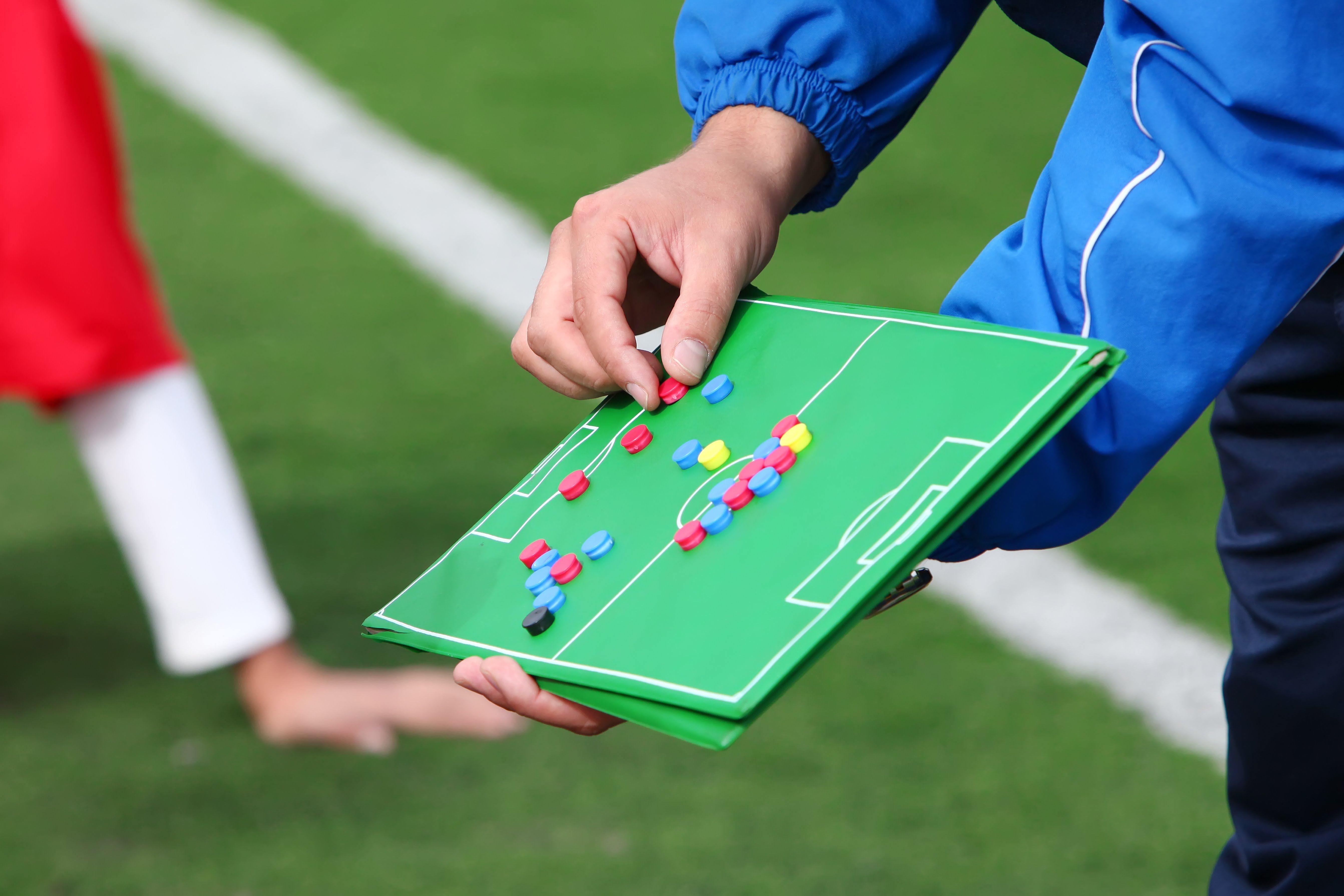The Global Game
Football is the most popular sport on the planet, approximately 282 million people play, coach or officiate the game, roughly 4% of the world's population, whilst more that half the world's population follow the sport in some capacity.

It is easy to appreciate why football is played almost everywhere; the 17 laws of the game are easy to understand, implement and adapt, and minimal equipment is required to play (meaning you can participate almost anytime and anywhere). Compared to other sports, the physical and technical requirements of football are more evenly balanced, making the game more accessible.
The basics of coaching the game
More than ever, young players are exposed to the game through organised play, rather than the street soccer and pick-up games of yesteryear.
Therefore, the coach is now integral in the acquisition of skills and game-understanding for players, and it is vital that coaches are providing these young players with activities that:
- Look and feel like the game of football (Game-Specific)
- Are age and ability appropriate with individual and group developmental challenges (Skill Acquisition)
- Most importantly, are fun, engaging and develop a life-long love for the sport (Passion and Desire

Our responsibility to our players
Coaches should always remember that football is a game, and games are meant to be fun! We are in a privileged position; research has shown that a sports coach is one of the most influential figures in a young person"s life outside of their parents/guardians.
With this privilege comes responsibility to develop the young person both on the pitch (by teaching and guiding them how to play and love the game) and off the pitch (by instilling positive character traits such as teamwork, responsibility and respect).
This can be achieved by establishing team rules and expectations such as encouraging players to shake hands with the coach and team mates when arriving and leaving practice, and by also respecting officials and opposition players, coaches and parents on matchdays.
Why plan a coaching session?
The saying “failing to prepare is preparing to fail” is as true in sport and football as it is in other aspects of life. There are many reasons why we should plan our coaching sessions and there are influencing factors within every club environment, with every team and with every group of players that dictate the long, medium and short term plans.
Technical and tactical development: Following a curriculum
A curriculum typically refers to the knowledge and skills an individual is expected to acquire over a course of time; a season in soccer or an academic year in education.
With the implementation of the Elite Player Performance Plan (EPPP) in professional youth academies in England and the recently-formed US Development Academy, clubs competing in these systems are required to have a clearly defined philosophy, learning objectives across all age-groups and a season plan detailing how this will be delivered week by week.

Coaches then follow this curriculum plan, devising activities that will promote the learning outcomes for the chosen theme. I know from my own experiences that even with the resources at the disposal of a professional coach, this is a difficult process to get "right".
This begs the question 'How can recreational and grassroots clubs also formulate curriculums that allow their players to achieve age-specific learning objectives for the game?' The answer is, it"s going to be very difficult.
The reality is that, unless you’ve been an Academy Manager in a professional academy, it’s unlikely that you will’ve experienced designing and implementing a coaching curriculum for an entire cycle of development. Even professional coaches at academies are generally following guidelines, laid out by the Academy Manager or Technical Director.
By answering a few questions, I and The Coaching Manual technical staff have leveraged our knowledge and expertise to help coaches with team accounts generate age-appropriate season plans, with video sessions from a top Premier League academy, populated into a coaches calendar for delivery over their chosen time period.
Click here to learn more about The Coaching Manual"s "Season Plans".
Game Implementation: Tactics to win the next game

Another motive for session planning is that a team may have an upcoming fixture or tournament and wish to implement specific tactics to overcome their opposition. Alternatively, a coach may want to introduce a new tactical concept for their team to try out.
Before a team can adopt tactical principles, the individual players and units must be able to recognise their roles within the system, and the principles should be trained and rehearsed to check for understanding and reinforce any learning objectives around the concept.
The Coaching Manual has a vast array of sessions around various tactical principles along with guides covering the roles and responsibilities when adopting a specific formation. These can be searched for by clicking on the search icon (magnifying glass) and typing in the concept or formation you (and your players) require.
Improvement Areas: Development areas from previous games
At times, individuals, a unit or a team may continually make mistakes or have flaws in their game and despite the coach allowing opportunities for self-correction, the answers are not being found by the players.
This is not necessarily the fault of the players, as in any area of life, people need help finding the solutions. This is where the planning of the coach is important. It may even be necessary to step away from the curriculum or season plan to address this developmental area, before moving on again with the planned sessions.

Scenario 1:
A team is dominating possession and creating lots of chances but, due to the movement and finishing techniques of the forward players, they are not scoring many goals. In this situation, I would plan a session around "Finishing in and around the penalty area" to specifically address this development area and build confidence within the attacking unit. I might also spend some one on one time with the strikers to address individual technique.
It is important to stress at this point that mistakes are not seen as negatives within youth soccer; rather mistakes should be seen as opportunities for learning and growth to take place and a coaches intervention and communication is also vital in creating a positive learning environment where creativity is encouraged.
For coaches looking to coach specific development areas, The Coaching Manual has a filter feature that allows coaches to search for information based on content type and relative to the age group they are coaching.
Planning to step away from a plan!
As coaches, it’s also worth creating opportunities to allow players to take responsibility for their own development. I highlight times in the training calendar to allow my team to create their own games and practices through player-led sessions.

This benefits the players as it is engaging, allows them to take ownership of the things they want to learn and also goes back to the street-based roots of the game being about fun and enjoyment with your friends!
In the related content of this article, there are player-led sessions that have been captured at Southampton’s academy demonstrating the players designing their own games and rules whilst the coach provides guidance through asking questions and setting challenges.
To Conclude
Planning is a vital component in the development of youth soccer players, as the youngsters should be acquiring game knowledge and techniques/skills at various stages of their involvement with the game.
The understanding and skill acquisition is correlated to the activities and sessions designed by the coach and the consistent messages communicated to the players.

![Why We Plan A Coaching Session [Part 1]](https://content.thecoachingmanual.com/hubfs/game%20implementation-min.jpg)
